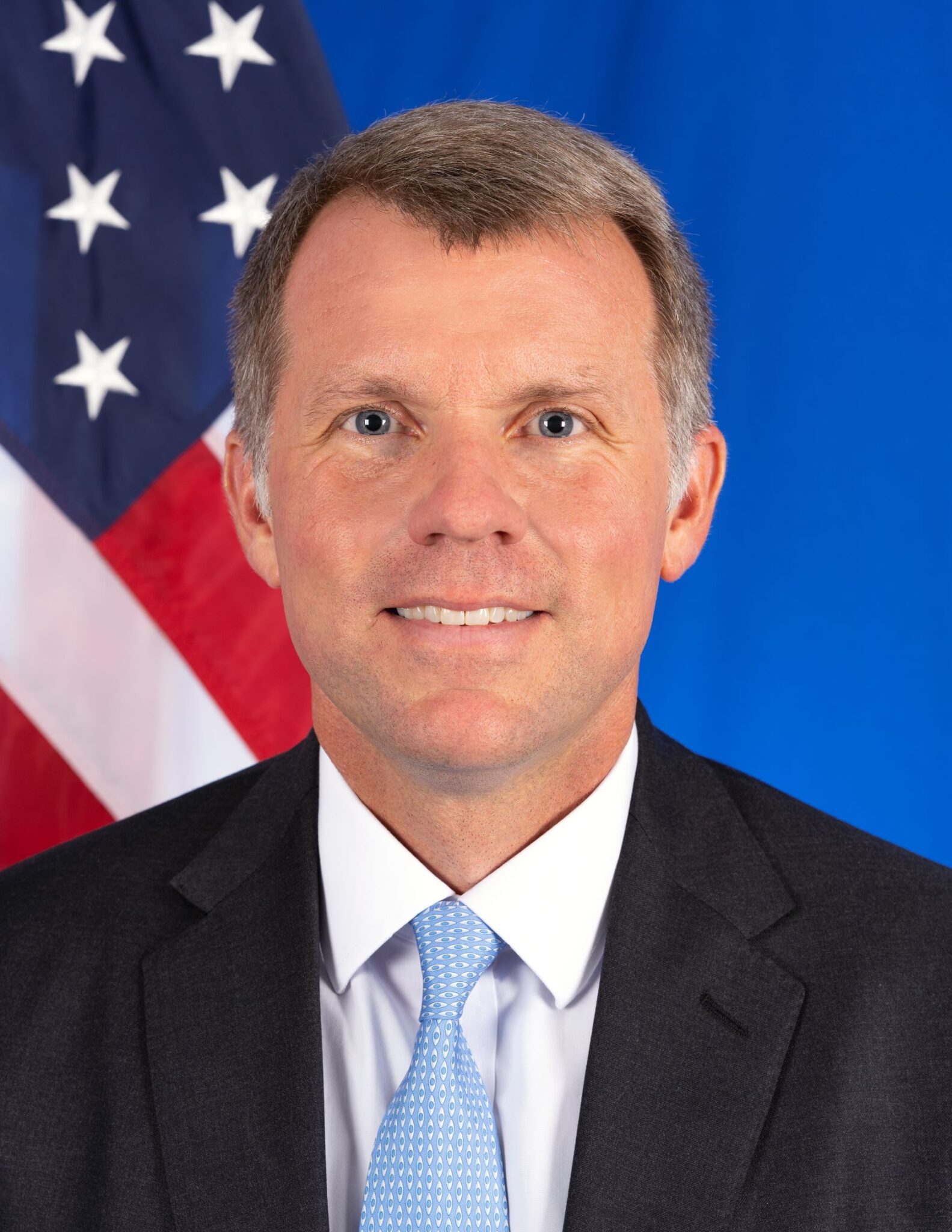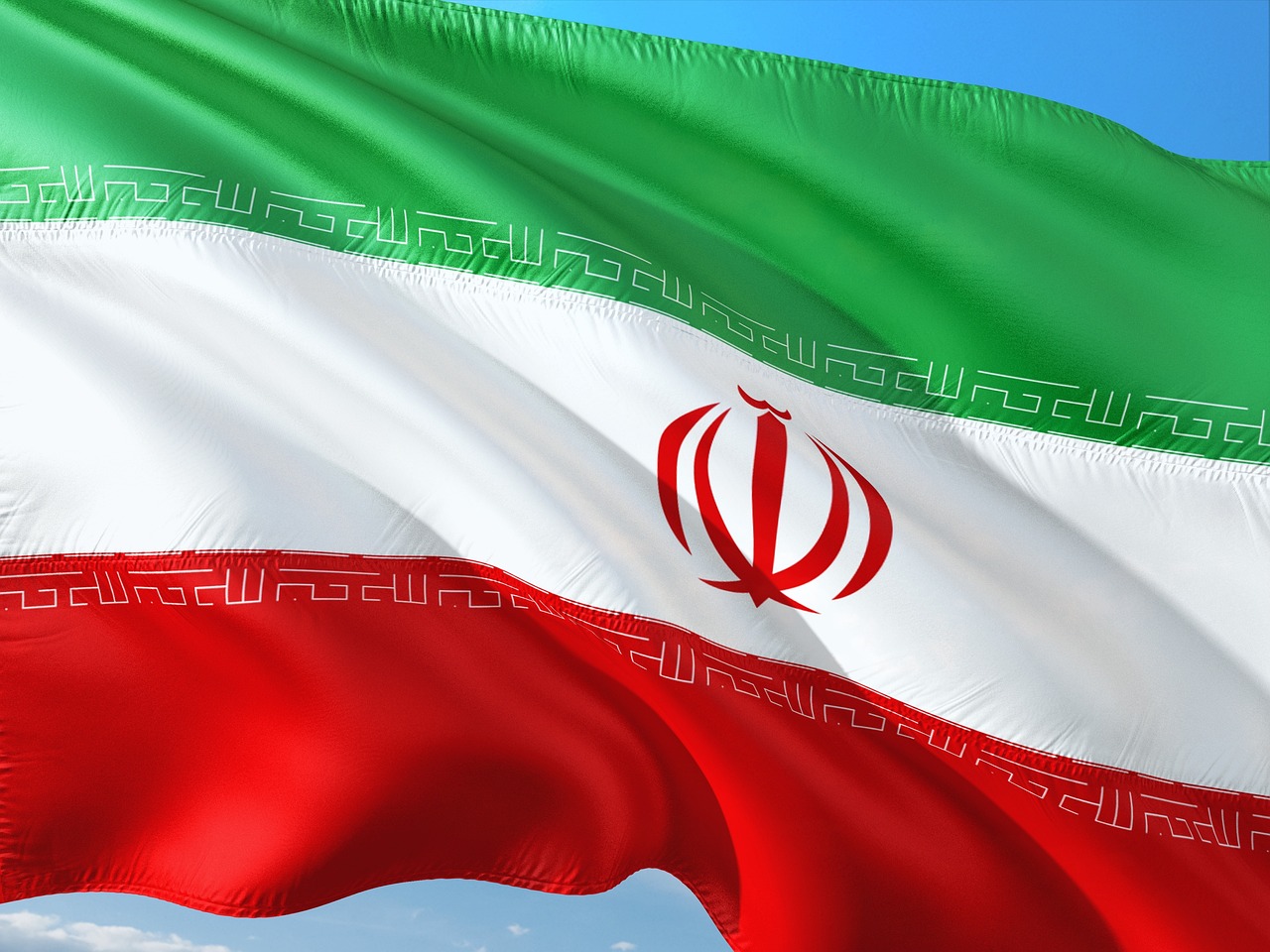By Byron Owen
In a recent interview held as part of the Credera Veteran’s Network Ambassador Fick Panel, Ambassador Nate Fick, the US Ambassador at large for Cyber and Policy, provided insights into the evolving landscape of technology diplomacy and the challenges the world faces in the realm of emerging technologies. The interview touched upon various critical topics, including principles guiding tech diplomacy, regulation of emerging technologies, building trust among nations, and the role of AI in shaping the future.

Ambassador Fick’s Role and Mission
Ambassador Nate Fick opened the interview by introducing himself and his role as the US Ambassador at large for Cyber and Policy. This position was established based on the recommendations of the Cyberspace Solarium Commission over several years. Its primary mission is to integrate and elevate the United States’ approach to technology diplomacy, recognizing that technology’s influence extends to every aspect of foreign policy. Whether the issues involve arms control, climate change, human rights, or international relationships, tech diplomacy has become inseparable from diplomatic efforts.
He envisioned his role encompassing three broad areas: cybersecurity policy, telecommunications policy, and critical and emerging technologies. These three areas are built on a foundation of digital freedom, where technology development, deployment, and governance are done in a fundamentally inclusive and rights respecting way. This responsibility for this governance spans across multiple stakeholders that includes not only the government but also companies and civil society organizations of all kinds.
Key Priorities in Tech Diplomacy
Ambassador Fick highlighted several key priorities in his role:
Institutionalizing Tech Diplomacy: The Ambassador emphasized the need to build a foundation for enduring tech diplomacy within the US State Department. This includes creating new teams and bureaus, such as the Office of a Special Envoy for Critical and Emerging Tech, to ensure a sustained and integrated approach.
Global Tech Expertise: A significant focus is on training Department of State personnel to understand and address tech-related issues effectively. The goal is to have a trained expert in every US embassy globally by the end of 2024.
Addressing Global Challenges: The Ambassador noted that his office’s priorities align closely with both the National Security Strategy and the Secretary of State’s overarching goals.
First, there is a firm commitment to ensuring that the Russian invasion of Ukraine will result in a strategic defeat for Russia. In this context, a significant amount of effort is directed toward coordinating technology assistance to support U.S. allies in Ukraine.
Secondly, the Department of State recognizes that China has the ambition and capability to reshape the global order. Within the realm of technology, this translates into a global competition aimed at ensuring the deployment of trusted infrastructure wherever feasible. This includes the establishment of dependable wireless networks, secure undersea cables, and similar critical components of modern connectivity.
Lastly, his office needs to maintain the capacity and capability to respond swiftly to various cyber threats and emergencies globally. For example, he pointed out that his office was currently the lead US agency for responding to Iranian cyber-attacks against Albania and Russian ransomware attacks in Costa Rica.
The Theory of the Case
Ambassador Fick elaborated on the theory guiding his tech diplomacy efforts. He stressed that technology innovation must remain the nation’s north star, as it has become foundational to national power. In this context, governance should aim to maintain a competitive advantage and promote vibrant tech ecosystems in the United States and among allies. This will create harmonized markets and ensure that technological innovation aligns with democratic values.
Veterans in Tech Diplomacy
Drawing from his own military background, Ambassador Fick highlighted the value of military leadership and experience in his career journey. He emphasized principles of servant leadership, distinguishing between legal and moral authority, and the idea that everyone within an organization, regardless of their position in the org chart, can be a leader. He encouraged individuals pursuing tech careers to consider spending time in public service to support their nation’s mission.
Principles of Tech Diplomacy
Ambassador Fick outlined two foundational principles in tech diplomacy:
Multi-Stakeholderism: Effective tech development, deployment, and governance cannot be achieved solely by governments. It requires collaboration with the private sector, civil society organizations, and a free and open press. This democratic, coalition building approach contrasts with the authoritarian, top-down strategies of some competitors and adversaries.
Innovation as a North Star: The focus should be on preserving a nation’s innovative edge, as innovation increasingly determines a country’s national power. Tech diplomacy should prioritize not only a nation’s commercial interests but also the creation of vibrant harmonized markets among like-minded partners.
Building Global Consensus
During the panel discussion, Ambassador Fick emphasized the importance of building a consensus on tech governance. He acknowledged the challenges arising from varying viewpoints among nations. The European Union, for example, has a different viewpoint than the U.S. on regulating the tech industry that is borne out of wanting to protect citizens but may hinder development through over-regulation. The Department of State wants to foster a regulatory environment internationally that encourages business creation.
Challenges in Trust-Building
Regarding trust-building in the tech domain, Ambassador Fick recognized the historical lack of trust between nations due to past exploitation, animosity, and uneven outcomes. He also noted the challenges posed by different cultural perspectives and national interests. The abuse of technology, such as social media, sows doubt as to whether the government can be trusted to govern AI appropriately.
He began by discussing the complexities within the G7, where diverse viewpoints must be considered even among like-minded nations. For instance, the European Union (EU) has taken a different approach to regulating emerging technologies, which requires patience and understanding from other nations. Moving on to the United Nations (UN), Ambassador Fick highlighted two significant challenges. First, the People’s Republic of China (PRC) has a fundamentally different perspective on the future of technology, particularly in terms of privacy and the role of the government in the private sector. This ideological gap creates a formidable obstacle to international agreements. Second, Russia’s behavior on the global stage, particularly in the context of their illegal war with Ukraine, has complicated diplomatic efforts. Russia’s actions, including violations of international law and human rights abuses, make it challenging to reach consensus on complex technology issues within the UN.
Despite these challenges, Ambassador Fick stressed the importance of multi-lateral engagement. He pointed out that the UN has achieved notable success in the realm of cybersecurity diplomacy. The framework for responsible state behavior in cyberspace, which governs state conduct below the threshold of using force in cyberspace, has garnered unanimous endorsement from all UN member states. This achievement highlights the potential for diplomatic success through sustained effort, even in the face of geopolitical complexities.
Transparency and Accountability in AI
Regarding AI and transparency, Ambassador Fick acknowledged the need for measures to ensure transparency and accountability in AI systems’ decision-making processes. Fick outlined the essential steps and commitments being taken to address these concerns. He pointed to the three categories of guidelines—security, safety, and trust—that underpin voluntary commitments by leading tech companies. An expanding group of companies, including major foundation model developers, have agreed to a set of voluntary commitments that aim to maintain a level of trust in AI applications while allowing innovation to flourish. These commitments fall into three overarching categories: security, safety, and trust.
Security, the most familiar category, revolves around guidelines for securing AI models. This encompasses cybersecurity standards, third-party testing, and the transparent disclosure of test results.
Safety is more complex, because it is hard to anticipate what generative AI will do until it is stress tested in a manner similar to its widespread usage. Rigorous testing and red teaming can help ensure that AI models do not generate harmful results. Safety measures are particularly important to prevent these systems from being used to harm society.
The third and most intricate category is trust. Building trust in AI systems entails enabling users to distinguish between AI-generated and non-AI-generated content. This involves elements such as content identification and potentially watermarking. Ambassador Fick acknowledged the challenges associated with these efforts, including the potential for spoofing and the need for public education to ensure users recognize and value these trust indicators.
Fick emphasized the central role of trust in the rapid adoption of AI technologies. He noted that the pace of AI adoption and the resulting benefits to businesses will depend on the level of trust established in these technologies. Trust is, in essence, the linchpin of the digital economy, underpinning cybersecurity and fostering a climate where people can confidently engage in various digital endeavors.
In conclusion, Ambassador Nate Fick’s insights shed light on the importance of transparency and accountability in AI decision-making. As AI continues to permeate every facet of our lives, it is imperative that governments, businesses, and civil society work collaboratively to ensure AI systems are transparent, safe, and trustworthy. While the road ahead may be challenging, the first steps toward building this essential foundation must be taken now to unlock the full potential of AI in a responsible and reliable manner.
Conclusion
In conclusion, Ambassador Nate Fick’s insights provide a roadmap for navigating the complex terrain of technology diplomacy and global challenges. His emphasis on principles like multi-stakeholderism, innovation, and transparency provides a framework for addressing complex global issues related to emerging technologies. As the world navigates the intricate realm of tech diplomacy, fostering collaboration, building trust, and ensuring responsible tech governance remain paramount. As AI continues to reshape our world, transparency, accountability, and trust will be the cornerstones of responsible and successful tech adoption. By working together—governments, businesses, and civil society—we can pave the way for a future where technology serves humanity’s best interests while upholding democratic values.
Byron Owen is the Editor in Chief of Key Terrain Cyber, a professional journal about information warfare and a veteran’s media organization. He is also a United States Marine whose career started in the infantry and later transitioned into intelligence and cyberspace warfare. He previously served as the commanding officer of 3d Radio Battalion, Cyberspace Warfare Task Group 1 at Fleet Cyber Command, Combat Mission Team One at Marine Corps Forces Cyber Command, and 1st Force Reconnaissance Company.

This site is free for everyone to learn about information warfare, connect with mentors, and seek the high ground! Unfortunately operating the site is not free and your donations are appreciated to keep KTC up and running. Even a five or ten dollar donation helps.







